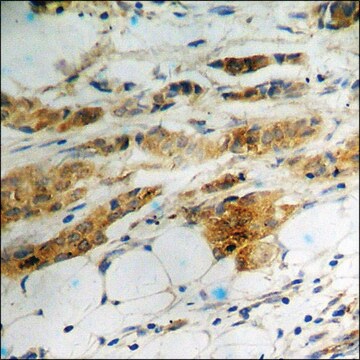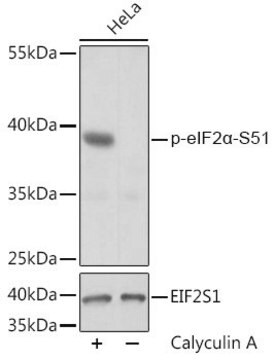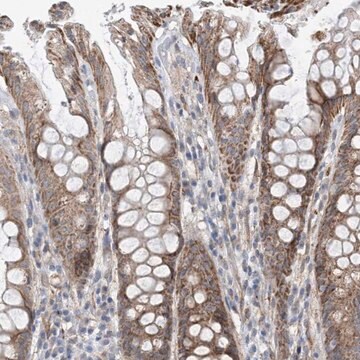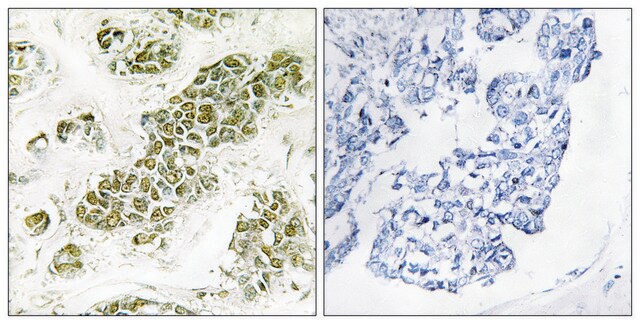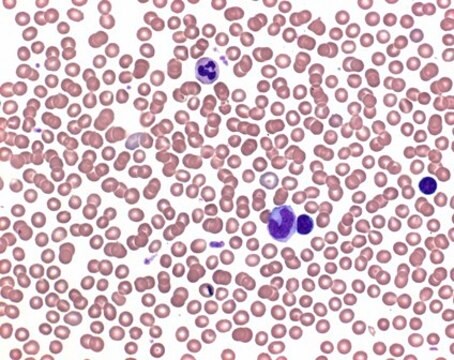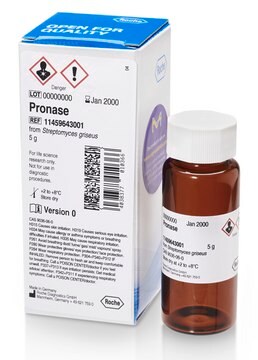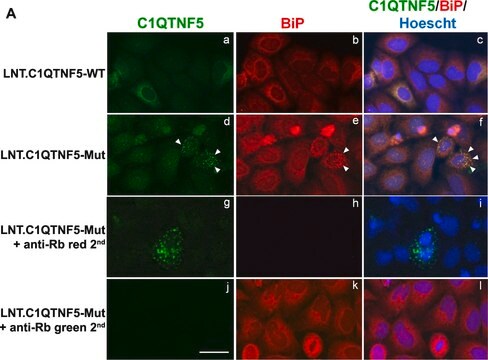Kluczowe dokumenty
E0157
Anti-eIF2α antibody produced in rabbit
IgG fraction of antiserum, buffered aqueous solution
Synonim(y):
Anti-EIF2, Anti-EIF2S1, Anti-Eukaryotic translation initiation factor 2, subunit 1, Anti-eIF-2A
About This Item
Polecane produkty
pochodzenie biologiczne
rabbit
Poziom jakości
białko sprzężone
unconjugated
forma przeciwciała
IgG fraction of antiserum
rodzaj przeciwciała
primary antibodies
klon
polyclonal
Formularz
buffered aqueous solution
masa cząsteczkowa
antigen ~35 kDa
reaktywność gatunkowa
human
metody
immunohistochemistry: 1:250 using human cerebral cortex sections
western blot: 1:250-1:500 using PC-12 cell lysate
numer dostępu UniProt
Warunki transportu
dry ice
temp. przechowywania
−20°C
docelowa modyfikacja potranslacyjna
unmodified
informacje o genach
human ... EIF2S1(1965)
Opis ogólny
Specyficzność
Zastosowanie
Przeciwciało anty-elF2α nadaje się również do immunohistochemii w rozcieńczeniu roboczym 1:250 z użyciem skrawków ludzkiej kory mózgowej.
Działania biochem./fizjol.
Postać fizyczna
Przechowywanie i stabilność
Oświadczenie o zrzeczeniu się odpowiedzialności
Nie możesz znaleźć właściwego produktu?
Wypróbuj nasz Narzędzie selektora produktów.
polecane
produkt powiązany
Kod klasy składowania
10 - Combustible liquids
Temperatura zapłonu (°F)
Not applicable
Temperatura zapłonu (°C)
Not applicable
Środki ochrony indywidualnej
Eyeshields, Gloves, multi-purpose combination respirator cartridge (US)
Wybierz jedną z najnowszych wersji:
Certyfikaty analizy (CoA)
Nie widzisz odpowiedniej wersji?
Jeśli potrzebujesz konkretnej wersji, możesz wyszukać konkretny certyfikat według numeru partii lub serii.
Masz już ten produkt?
Dokumenty związane z niedawno zakupionymi produktami zostały zamieszczone w Bibliotece dokumentów.
Nasz zespół naukowców ma doświadczenie we wszystkich obszarach badań, w tym w naukach przyrodniczych, materiałoznawstwie, syntezie chemicznej, chromatografii, analityce i wielu innych dziedzinach.
Skontaktuj się z zespołem ds. pomocy technicznej